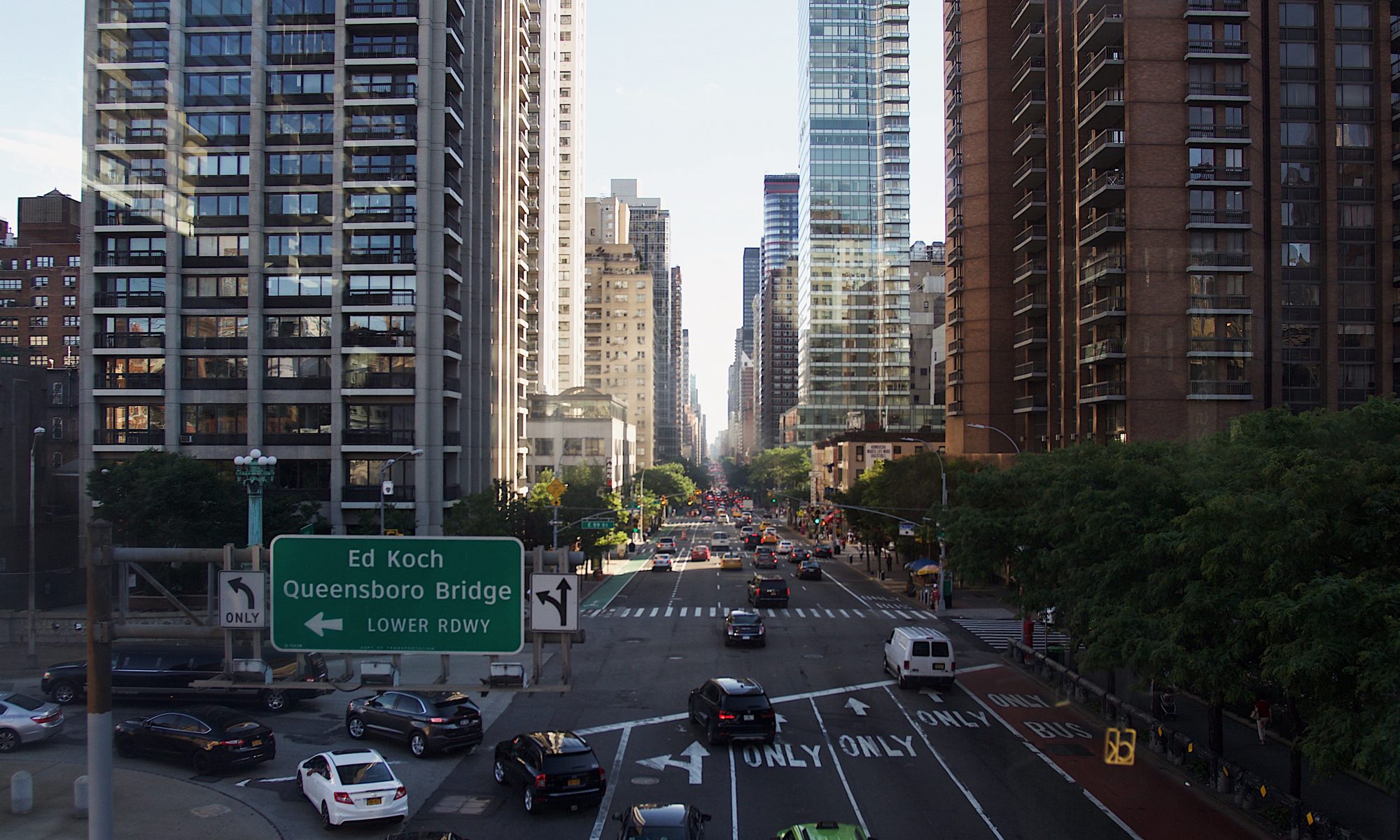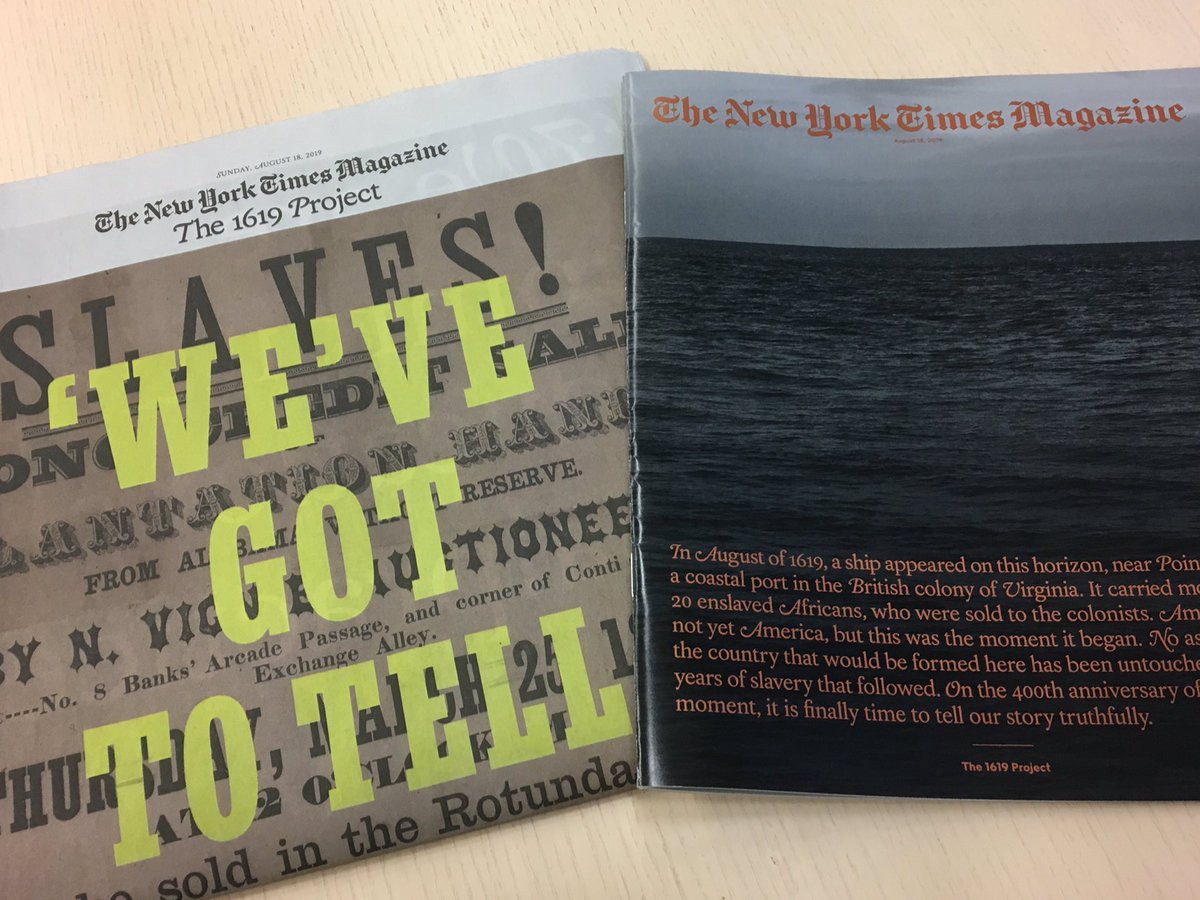Following my recent adventures at NABJ, I was adamant about trying to continue to read more journalism. In a setting filled with black journalists who recounted the challenges they faced because of their race in their profession was often heartbreaking to hear but motivating. The stories of triumph against a world that has treated us as less than deserving reporters and people telling us our background makes us biased were powerful. It reminded me why I love being a journalist who wants to cover race and politics in America.
Tomorrow, the New York Times Magazine will publish a complete issue called “The 1619 Project.” This incredible undertaking, pitched and brought together by the brilliant Nikole Hannah-Jones, attempts to further our understanding of the effects of slavery on this 400 year anniversary when the first slave ships arrived in British colonies in North America. Filled with essays, photo essays, poetry, and further prose, the project also will have a special section in tomorrow’s Sunday Edition of the New York Times, along with episodes on the popular “The Daily” podcast, as well as more pieces over the next few months.
Although only just an essay and a half through, I am blown away with not just the prose and writing as a whole, but more importantly I am just filled with a lot of indescribable emotions. Hannah-Jones’ essay begins the project, and she argues, rightfully so, that we must refocus the origin of this nation not in July of 1776, but rather in August of 1619, when 20–30 enslaved Africans were brought to Jamestown. It is at this moment the true story of America begins; it is a story that is not pretty, not glorious, and most of all, built on a designed racial hierarchy with black people at the bottom. She articulates further in the article that this country’s independence is based on a lie that all men are created equal, but it was the movements for civil rights by black people that helped bring that equality further towards the democracy the founders claimed they had established in 1776.
The rest of the essay follows this dissection of how we got to where we are and, how against all odds, black people have risen up to become the most American of all. I won’t go further into the essay, but this is the type of story and breakdowns of history we all as Americans need today. We all need to learn this. That’s why the Pulitzer Center partnered with The 1619 Project to create a free education curriculum to help teachers across the country learn the truth about slavery.
A common question ignorant and even well-intentioned people are constantly asking black journalists and writers is “Why are you doing this now? Why write about race? I don’t see race, so what’s the point of dividing us now?” The simple answer is that in the near 250 years of bondage black people suffered under, we have only been legally “free” for 50 years. For the first time, black journalists like Hannah-Jones, Brent Staples, Vann Newkirk, Ta-Nehisi Coates, and others are finally getting the opportunity to have the resources and backing from some of the largest publications in the world to really dig into these issues. If you have the time to watch the launch presentation of The 1619 Project, all the journalists and even editor of the magazine Jake Silverstein, are well-aware of how even a few years ago, a pitch on doing a story or two like this, let a massive undertaking like this project, may not have even gone through.
But there’s a deeper reason and desire to cover these issues now, and it has a whole lot to do with the climate we are in politically. Now, in the open and on both sides of the political aisle, there is a fear to discuss the true effects of slavery and racism on America. People are reluctant to use the terms “racist,” equivocating it to extreme usages like when a white person says “nigger,” or when a white person dons a Ku Klux Klan hood and robes. But the problem with this is that people are negating and ignoring the present day racism and racial abuse (as it should be said).

That’s why just a day after release, I picked up Dr. Ibram X. Kendi’s newest book “How to Be an Antiracist.” Kendi’s goal is to explain how not being racist isn’t enough, because in doing so, one only perpetuates the racial inequity that exists in America. To be “antiracist,” as he defines it, is to support policies that treat all people as equal and actively pushes for racial equity. I’m about five chapters in, but Kendi so precisely goes towards articulating a new explanation for racism in America: it is racist policy that perpetuates racist ideas which permeate through society, not vice versa. He believes that for there to no longer be a moment where races are viewed as unequal, systemic, antiracist policy must be put in place to allow for a true correction in society. Interjected throughout the book, Kendi brings in personal anecdotes that helped him form his own current understanding of race relations in a digestible way for people who don’t know how to approach the issues presented.
Both The 1619 Project and How to Be an Antiracist are massive endeavors black writers are taking today in helping teach the masses about the issues our nation has chosen not to educate us on. Black writers have been doing what they have done for generations, but now, we are finally getting the chance to share our stories with the masses. To Hannah-Jones, Kendi, and the countless others putting their careers on the line to tell these truths, thank you for writing and for dedicating your lives to this fight. I hope to one day go out and cover these stories like some of my biggest inspirations.
Read both the project and the novel, and I assure you will learn something profound.
Being Noah Tesfaye #94: Why We Must Report on Slavery and Racism in America Today — The 1619 Project and “How to Be an Antiracist”
Thanks for reading this week! Follow me on Twitter if you want to ever discuss anything and hear my spontaneous thoughts. Also, if you want to see more of my work, visit my website!
Twitter: https://twitter.com/noahbball1
Website: http://noahtesfaye.com/

